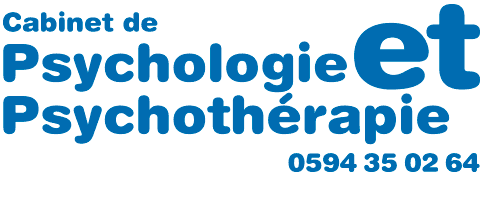





942, Allée du Mont Grand Matoury | 97351 Matoury





First contact
Though not compulsory, it might be a good idea to see your GP before making an appointment with the Cabinet de Psychologie et Psychothérapie. You can contact us via email but appointments are scheduled exclusively by telephone. Your call will probably be answered by the administrative assistant, your contact details taken, and a callback by a psychologist arranged. If a psychologist is available, the assistant will put you through directly. If there is no answer, please leave a message. In the first phone contact, the psychologist will ask you if you want a one-to-one or a couple therapy. The clients of the Cabinet de Psychologie et Psychothérapie are 18+ only.
First consultation
During the first meeting, the psychologist assesses the reasons you have to come to seek counselling. One consultation may be enough to help you clarify the situation you have encountered. At the end of the first appointment, the psychologist gives you advice on what to do next. They can possibly put forward short-term counselling or psychotherapy. If they cannot offer a constructive answer to your problem, they help you to find another practitioner to assist you.
Psychological counselling
Generally speaking, you have a happy life and you can cope with problems.
However, suddenly, you cannot deal with a particular problem - like moving to or from French Guiana, a failed relationship, a disease, a problem at work or anything else. In psychological counselling, the psychologist, in one or more consultations, helps you restore your balance and get to grips with your difficulties.
Couple psychotherapy
A couple can seek the help of a psychotherapist for different reasons. Poor communication can result in repetitive and/or serious quarrels. Significant events such as unfaithfulness, disease, moving to or from French Guiana, etc.. might be difficult to cope with together. They can consult a psychologist if the wish to put an end to the relationship by one or both of the partners might cause damage for one of them or for their children after they break up. In general, the couple come together for the first consultation. If this is not possible, each person is seen individually before they finally come together for an appointment. As IN a one-to-one psychotherapy, the therapist first evaluates your difficulties. Depending on the result of this assessment, the psychotherapist gives you advice on the next steps. In couple therapy, the emphasis is on the interaction between both of you and the quality of your communication. Often, the psychologist will give you homework to do before the next consultation.
The psychotherapy
A psychotherapy treatment will be recommended if your problem is repetitive and dysfunctional. Angst, depression, social anxiety, trauma or mourning are examples of reasons to begin with psychotherapy. Your doctor may have given you the advice to consult a psychotherapist because of somatic symptoms (pain in the chest, eczema, poor digestion, etc...) that might have a psychological origin or are intensified by stress.
Psychotherapy is a dialogue with a professional, the psychotherapist. During the consultation, you speak with the psychotherapist about your difficulties. Although the therapist will help you find a solution or learn to cope better with them, they will not remove the source of the problem. Dependent on the therapeutic technique used, work might be done on painful emotions. The goal of psychotherapy is to improve your quality of life.
Before starting psychotherapy
Before beginning with psychotherapy, an accurate diagnosis has to be established. To make this diagnosis, an evaluation is made during several meetings. The psychotherapist asks you questions about the reason that motivated you to look for help, about your everyday life, your work, your family, your hobbies, your friends but also about your past, what you had to cope with, what was positive and negative.
With these pieces of information, the psychotherapist will reach a diagnosis. Because psychotherapy can cause strong reactions, fears and stress, the therapist will check if you can receive the treatment. For example, if someone is in a highly unstable situation, it might be the wrong time to begin with psychotherapy. In any such situations, if the psychotherapist concludes that the time is not appropriate to undergo psychotherapy, they will give you advice on how to find help that better matches with you.
If their conclusion is that you can benefit from psychotherapy, the psychotherapist will discuss with you the different kind of psychotherapeutic techniques, he can recommend. He will explain what you can achieve with the therapy and he will inform you about the expected duration and cost of the treatment. With these pieces of information, you can reach a decision. It is advisable to take the time you need before you make a commitment.
The different approaches to psychotherapy
At the Cabinet de Psychologie et Psychothérapie, after the diagnostic assessment, the psychotherapist may recommend different types of psychotherapy. (too informal/bordering on incorrect grammar)
Cognitive behavioral therapy (CBT)
CBT is based on the combination of the basic principles from behavioural and cognitive psychology. Behavioural Therapy puts emphasis on how a change in behaviour can influence a change in emotional response, whereas the assumption of Cognitive Therapy is that certain types of thinking may be responsible for emotional distress. Combining these two theories, CBT uses techniques directed at changing thought patterns and/or behaviour of patients in specific situations.
It is a "problem-focused" and "action-oriented" form of therapy, i.e. it focuses on finding a solution to an identified problem and concentrates on the here and now. The psychotherapist will give the patient some homework. Usually, the duration of a CBT is between 10 and 25 sittings.
Systemic psychotherapy
Systemic therapy seeks to address patients not only on the individual level, but also as people in relationships, dealing with group interactions, patterns and dynamics.
After having identified detrimental patterns of your behaviour, you learn how to behave differently in the different circles (only one circle?) you are part of, like your family, your friends or your work. Systemic psychotherapy is almost always used in a couple therapy.
Psychodynamic psychotherapy
Psychoanalytic psychotherapy or psychodynamic psychotherapy is based on the fact that we are not always conscious of the reason for our actions. For example, someone can be repressed in their activity by emotions that are not directly connected with what actually happens in their life and of which the patient is unaware.
Psychodynamic therapies focus on revealing and resolving the unconscious conflicts that are driving their symptoms and helping the patient understand and finding solutions for their problems. Psychoanalytic psychotherapy is an in-depth treatment with a duration of one to three years.
Person-centered psychotherapy
Client-centered therapy or person-centered psychotherapy is a form of psychotherapy developed by psychologist Carl Rogers in the 1950s. As its name indicates, this approach of psychotherapy puts the client central. The patient decides which problem they want to work on and how deep they want to go in their therapeutical process. The person-centered psychotherapy doesn't only try to improve the functioning of cognition, behaviour or the unconscious but also takes the emotions of the patient into account and helps the patient to combine those elements and form an integrated whole. This form of psychotherapy is a pragmatic one as it isn't limited by one theoretical framework but instead can use several different techniques needed by the patient.
Group psychotherapy
The potency of group psychotherapy lies in the interaction of the patient with others in a safe environment. Eight to ten patients with one or two therapists constitute the psychotherapeutic group. The patient works on their own problem in the framework of the group. The techniques used come from cognitive behavioral, systemic or psychodynamic therapy, but always within the group. A group can be successful in helping the patient to go further and faster in their psychotherapeutical process than if they were alone with a psychotherapist.
The psychotherapeutic process
After the evaluation, if you decided so, the psychotherapy starts. You explore the problem(s) with the psychotherapist, and soon, you develop a working relationship with them. The process of psychotherapy can’t be predicted with accuracy because it depends on your personality and the goals you work towards.
When you feel better and/or your goal is reached, you enter the final phase. With your therapist, you decide to plan longer intervals between the appointments and in the end stop the therapy.
Psychotherapy is a process with ups and downs. You don't feel better every time you leave the practice and sometimes you feel even worse. You may have the feeling your problem is not improving. This may be because you speak about difficult subjects. But at the end, on the whole, you should feel better. Your psychotherapist is here to help you during those difficult times.
The outcome of psychotherapy
The aim of psychotherapy is to reduce psychological problems. This can often be achieved but not always. It depends among other things on the problems and on the capacity of the patient to adjust. Psychotherapy won't help you get a better job or a nicer house. It can't guarantee a successful and happy life but can help you cope better with new problems. Psychotherapy can help many people. The success of psychotherapy lies in the professionalism of the psychotherapist and just as much in the active endeavours of the patient.
Statutory Regulation of Counselling and Psychotherapy
It is important to know if the person you consult has the right to work in their capacity as psychologist and/or psychotherapist.
Since 25 July 1985, the title of psychologist has been legally protected in France. After a Psychology MSc and a short internship, a psychologist must register at the ARS (Agence Régionale de Santé), like all other health workers such as nurses and doctors. This protects you against illegal practice that is punishable by law (article 259 du code pénal). Since 2003, each psychologist must have an ADELI number that you can ask for.
The title of psychotherapist in France has been established by "décret n° 2012-695 du 7 mai 2012 modifiant le décret n° 2010-534 du 20 mai 2010 relatif à l'usage du titre de psychothérapeute". A psychologist who has had two months internship as a part of their MSc can apply for the title of psychotherapist.
In other European countries (Netherlands, Germany), the title of psychotherapist is given after a Psychology MSc plus 4 years specialisation in the field of psychotherapy including a 3 years’ internship under supervisors.
In the US, licensing is regulated at the state level, and it is illegal to offer services while physically within that state unless licensed by that state. If you are seeking face-to-face counselling in the United States, it is essential that you verify whether your practitioner is licensed because a counsellor offering services in the US without a license is breaking the law.
Other countries, including Australia and the United Kingdom, do not regulate the profession by means of licensing.
To date, there is no legally enforced regulation of counselling and psychotherapy in the UK. Joining a professional body and adhering to an ethical code is voluntary. In addition, the titles of ‘Counsellor’ and ‘Psychotherapist’ are not protected, therefore there is no legal minimum qualification needed to practice under those titles. Most employers, however, require a minimum qualification of Level 4 diploma in counselling.
Psychologists at the
Cabinet de Psychologie et Psychothérapie
Odile Chabas, Drs
Psychological counselling, psychotherapy, couple and group therapy.
ADELI 9c9300547 psychologue, psychotherapeute
BIG-Nummer 19049830625 Gz-psychologen
BIG-Nummer 39049830616 Psychotherapeuten
Linkedin :
Contact us
Phone : +594 (0)594 35 02 64
Cabinet de Psychologie et Psychothérapie
942, Allée du Mont Grand Matoury
97351 Matoury
Guyane Française - French Guiana
Your doctor advised you to seek professional counselling or you feel you need some help from a psychologist? Since 2006 in French Guiana, the Cabinet de Psychologie et Psychothérapie have attended to patients and clients in one-to-one, couple or group psychotherapy, using several psychological or psychotherapeutical techniques.
In the Cabinet de Psychologie et Psychothérapie, the practitioners have professional certification as psychologists and psychotherapists.
Because you might have some questions about counselling and psychotherapy, we try to give you some answers on this internet site. Please contact us if you have unanswered questions or if you want to make an appointment.


























